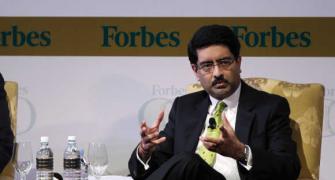 Apoorvanand pays tribute to much-loved and admired Hindi literary great who passed into the ages on Monday.
Apoorvanand pays tribute to much-loved and admired Hindi literary great who passed into the ages on Monday.
Rajendra Yadav, the last surviving member of the trio of the Nai Kahani, a major event of Hindi literature, is gone. The large crowd which assembled at the Lodhi Road crematorium to bid adieu to him consisted of people from different age groups, a fair number of them being youth and women with diverse professional and political backgrounds. It demonstrated the huge popularity he had earned for himself in the last quarter of his life as the editor of Hans, a literary monthly in Hindi.
The office of Hans in Daryaganj always kept its doors open for new writers, especially Dalits, tribals, Muslims and women with a pipe wielding Rajendra Yadav ready to welcome them. He could instantly draw them into conversation and many of them left the office of Hans with a feeling of discovering a new and dependable friend.
He took care to dispel the aura that should have adorned him with his long innings in the field of literature but could also have distanced him from the young. He was a person of wide reading and was therefore always in the proximity of greatness.
He, however, came out as a person who was more interested in the raw and unformed and many a times what was in the eyes of others uncouth and vulgar. He took risks with the untested and kept patience with it. Most probably he believed in the principle of plenty, that quantity and numbers were important in the beginning, life would fashion itself on this strength.
Deeply political, Yadav was a fiercely democratic man. An uncompromising secularism defined him. His unwavering support for the politics of the Dalits and 'backwards' earned him the ire of many of the upper caste Hindus but his seemed to enjoy their abusive assaults.
Controversy became the other name for Yadav. Some of his friends like his detractors, suspected that he wrote deliberately to stoke the fire to remain in limelight. His boldness verging on loudness upset the refined taste of many but he never changed his style. Rigour in editing was not his forte or perhaps he consciously avoided it to give space to the first generation writers.
He was a great simplifier and at times looked impatient with complexities. He saw his role more as a provider of space rather than arbiter of taste. He was perhaps the first in Hindi literature to realise the demands of the politics of recognition and the urgency with which it needed to be responded in literary language.
Social movements found a friend in Yadav. He was one of the few Hindi writers who would respond instinctively to the call
Yadav belonged to the era of Hindi writers who sincerely believed in the power of fiction and literature. They dreamt of living by it. They came from small towns, migrated to cities like Kolkata, Mumbai and Delhi already as cosmopolitan beings. They lived uncertainly, changed professions, always thinking that literature could be their final abode.
This was the romantic phase of Indian democracy. Friendships were formed, writers participated in each-others' lives and material scarcity did not diminish their gay attitude towards life and literature. It was also a generation with true literary memories. Mohan Rakesh, Kamleshwar, Dharmveer Bharti, Namvar Singh, Mannu Bhandari and others were part of this millieu. Yadav lived long enough to watch his era passing into oblivion. One by one all his friends departed. He spent his last years in loneliness. Could it be a reason that he constantly sought company of the young and not so young, to fight this increasing emptiness?
Delhi, where most of these writers finally settled down, was in their youth a place of hope, possibilities and proximities. Writers could meet daily and were available for their friends. Gradually distances devoured the city. Yadav tried to recover the lost neighbourliness through Hans.
It was not unusual to get his call inviting you to his birthday parties. He also started an annual congregation on July 31, the birthday of Premchand and Hans. It became an occasion for people to renew their contacts, meet new faces. People from outside Delhi would also join without caring for formal invitation. In all such gatherings Yadav could be seen sitting in a corner, quite at peace with himself.
Yadav had turned old, his eye sight had started failing and physically he was very frail. However, his keenness and eagerness for life never diminished. He kept the cup of life close to his lips. He was seldom found complaining and always seemed thankful for the days that were bestowed on him by nature. He did have the usual weaknesses and vices of a human being but they failed to unmake him. Mortality was what he sought to celebrate to remind the world that frivolous and ordinariness should not be shunned as life grows out of it.
Yadav would be missed sorely and his death mourned sincerely for all of us know that with him we lose the relaxed space of friendship and solidarity, for all of us, even if incapable of it seek it.
Also read: Mrinal Pande: Rajendra Yadav: The critic who spared not even himself










